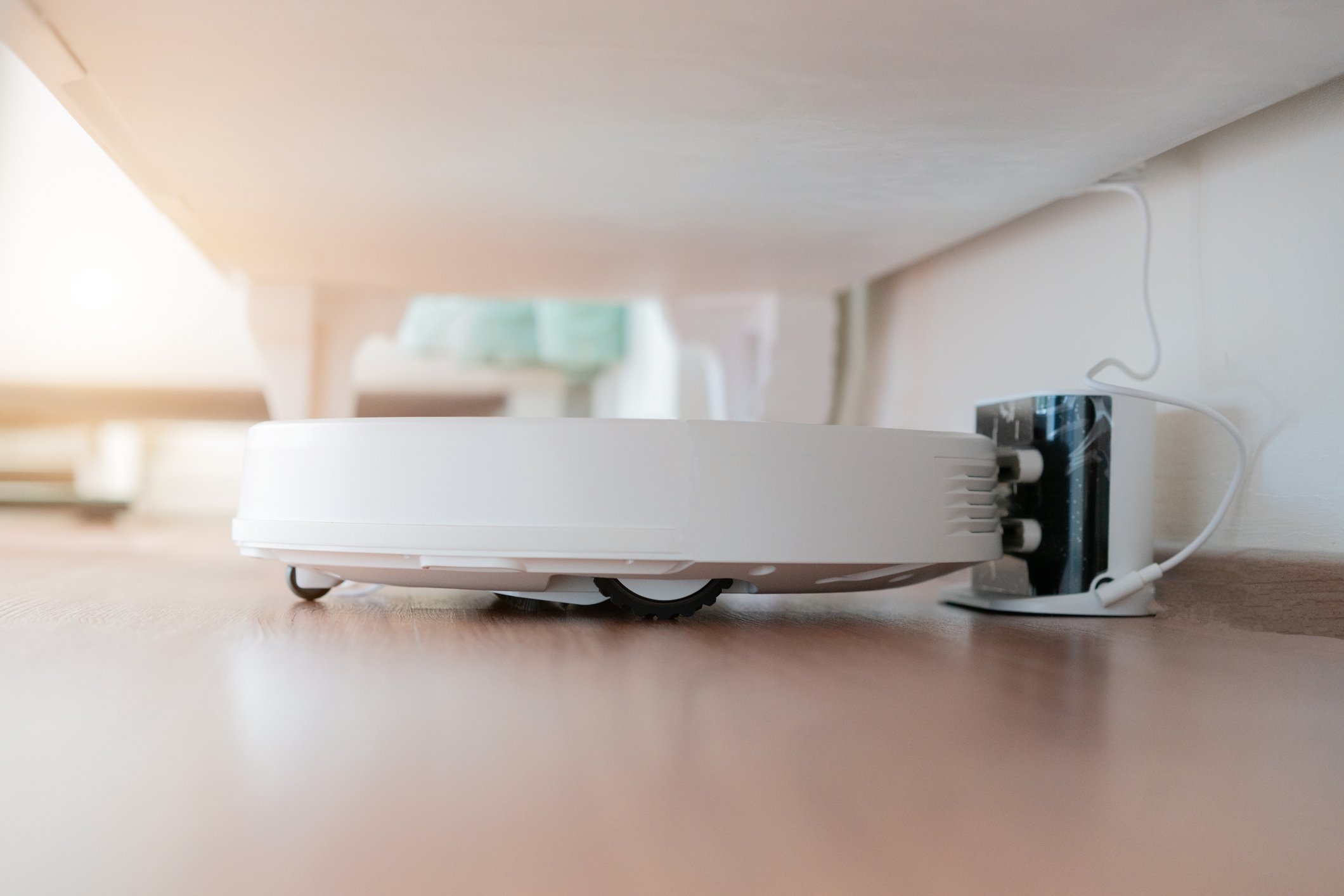Last week, defense juggernaut Northrop Grumman (NOC 0.20%) officially launched its CUTLASS unmanned ground vehicle, or UGV for short.

Northrop Grumman CUTLASS UGV. Image Source: Northrop Grumman
In describing the new robot, Northrop managing director Greg Roberts stated:
Our CUTLASS vehicle is setting new standards in the UGV market and significantly enhancing the ability of users to handle hazardous threats safely. It is more dexterous, cost effective and, as a package, four times faster than any other UGV. The vehicle is already in service across the U.K. and has proven itself to be robust and capable in the most demanding environments. We look forward to exploiting the potential opportunities for exporting this capability into international markets.
As Roberts hinted, CUTLASS was actually first demonstrated in 2007 in the U.K., its home market and where Northrop's unmanned ground vehicle business was originally established.
And therein lies the bad news for comparatively small iRobot (IRBT 3.25%); when Roberts says they're looking forward to expanding Northrop's CUTLASS into "international markets," you can bet he's got every single one of iRobot's existing customers in his sights.
Like iRobot's Packbot 510 units, CUTLASS can accommodate a wide range of payloads, sensors, and other attachments. Rather than using the usual treaded tracks, however, CUTLASS has a six-wheel design which Northrop claims gives it superior navigation abilities through a variety of terrain thanks to its pitch and roll sensors at speeds up to 12 kilometers per hour (or just over 7 mph). What's more, CUTLASS also uses an arm with a three-fingered gripper with "nine degrees of freedom" -- another dexterity advantage over many other UGVs.
Is iRobot in trouble?
All the while, iRobot has worked hard to restructure its struggling defense business amid today's unpredictable economic climate, opting instead to place much of its focus on the booming consumer business to which it sells its signature Roomba vacuums, Mirra pool-cleaning bots, and equally fun-to-watch Looj gutter cleaning robots.
Even still, looking back on the PackBot's history, it doesn't appear the well-loved robot is in any immediate danger of obsolescence The original PackBot was used as far back as 2001 to search the World Trade Center after the September 2011 terrorist attacks, and was deployed with U.S. troops for the first time in 2002 -- the same year the company launched its first Roomba vacuums. However, iRobot has continued to update the platform for today's ever-changing hostile environments.
In fact, more recently iRobot's PackBot was also spotted being utilized by the Boston Police Department after last week's tragedy to inspect a parked car the suspect may have been using.

iRobot PackBot 510. Image Source: iRobot
Despite the recent struggles in its defense business, just last week iRobot also won a sizable $28.8 million contract modification to expand the scope of its Man Transportable Robotic System program -- another small robotic vehicle based on iRobot's 510 PackBot platform.
What else does iRobot have going for it? An already huge customer base, for one.
Though the $17 billion Northrop claims to now have over 2,000 total UGVs -- including its CUTLASS, Andros, Wheelbarrow, and Caliber bots in operation around the world -- the $680 million iRobot boasts a huge head start over its massive rival with more than 5,000 total UGV's delivered as of last year, including more than 3,500 PackBots alone currently in operation by military and civil defense forces worldwide.
And while PackBot doesn't have six individual wheels, navigation certainly hasn't been an issue; its tank-like treads allow it to easily climb obstacles like stairs, and it can achieve a top speed of 5.8 mph, not significantly slower than the 7.2 mph of the CUTLASS.
Care to pick on someone your own size?
At less than 30 pounds, it's no wonder PackBot is so popular given its light weight and ease of mobility. Still, you definitely won't see it picking up 55 pound packages with its arm fully extended as the CUTLASS can. With that in mind, the CUTLASS also tips the scales at around 420 kg, or nearly 926 pounds.
Enter iRobot's larger Warrior UGV:

Image Source: iRobot
As it turns out, even though iRobot's big boy weighs just 500 pounds -- a little more than half the weight of a CUTLASS bot -- the Warrior can actually lift a heavier 70-pound load with its arm fully extended, and can muscle up a 300-pound package at close range. The Warrior also has a faster top speed at 8 mph.
Even more impressive, the Warrior's two-part, treaded design actually allows the huge robot to right itself should it accidentally flip on steep terrain -- something you certainly won't see the CUTLASS doing.
Foolish final thoughts
In the end, while iRobot would definitely be foolish (with a lower-case "f") to ignore competition from the likes of Northrop Grumman, it still looks like the tiny company's unmanned bomb-disposal bots don't have all that much to worry about for the time being.





